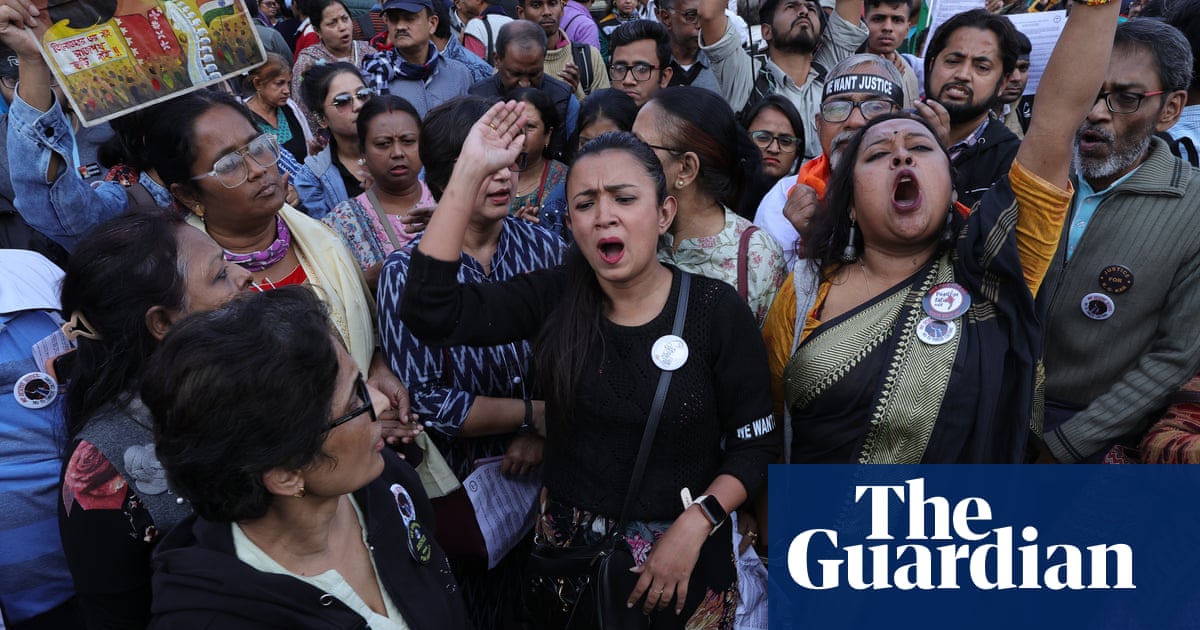A police volunteer has been found guilty of the rape and murder of a trainee doctor who was on duty in Kolkata, a crime that sparked protests across India amid concern about violence against women and girls.
The outcry over the killing of the 31-year-old physician in August led to the trial being fast-tracked through the legal system.
Judge Anirban Das said the sentence for Sanjay Roy, 33, would be announced on Monday. His punishment could range from life imprisonment to the death penalty.
Police discovered the body of the woman in the RG Kar medical college and hospital’s seminar hall on 9 August. An autopsy found she had been strangled and that a sexual assault had taken place.
Roy was arrested a day after the crime. He has maintained his innocence and pleaded not guilty in court.
The case was initially investigated by the Kolkata police but the court handed it to federal investigators after state government officers were accused of mishandling the investigation.
After the attack, doctors and medical students across India held protests and rallies demanding justice and better security. Thousands of women also protested on the streets, demanding justice for the victim as they participated in Reclaim the Night marches. Some protesters called for the perpetrator to be given the death penalty.
The attack prompted the supreme court to set up a national taskforce to suggest ways to enhance safety measures in government hospitals.
Many cases of crimes against women go unreported in India due to the stigma surrounding sexual violence, as well as a lack of faith in the police. Women’s rights activists say the problem is particularly acute in rural areas, where people sometimes shame the victims of sexual assault and families worry about their social standing.
The number of recorded rape cases in India has increased in recent years. In 2022, police recorded 31,516 reports of rape – a 20% jump from 2021, according to the National Crime Records Bureau.
In 2012, the gang-rape and killing of a 23-year-old student on a Delhi bus galvanised huge protests. It inspired lawmakers to order harsher penalties for such crimes, as well as the creation of fast-track courts dedicated to rape cases. The government also introduced the death penalty for repeat offenders.
The rape law was amended in 2013 to criminalise stalking and voyeurism and to lower the age when a person can be tried as an adult, from 18 to 16.








